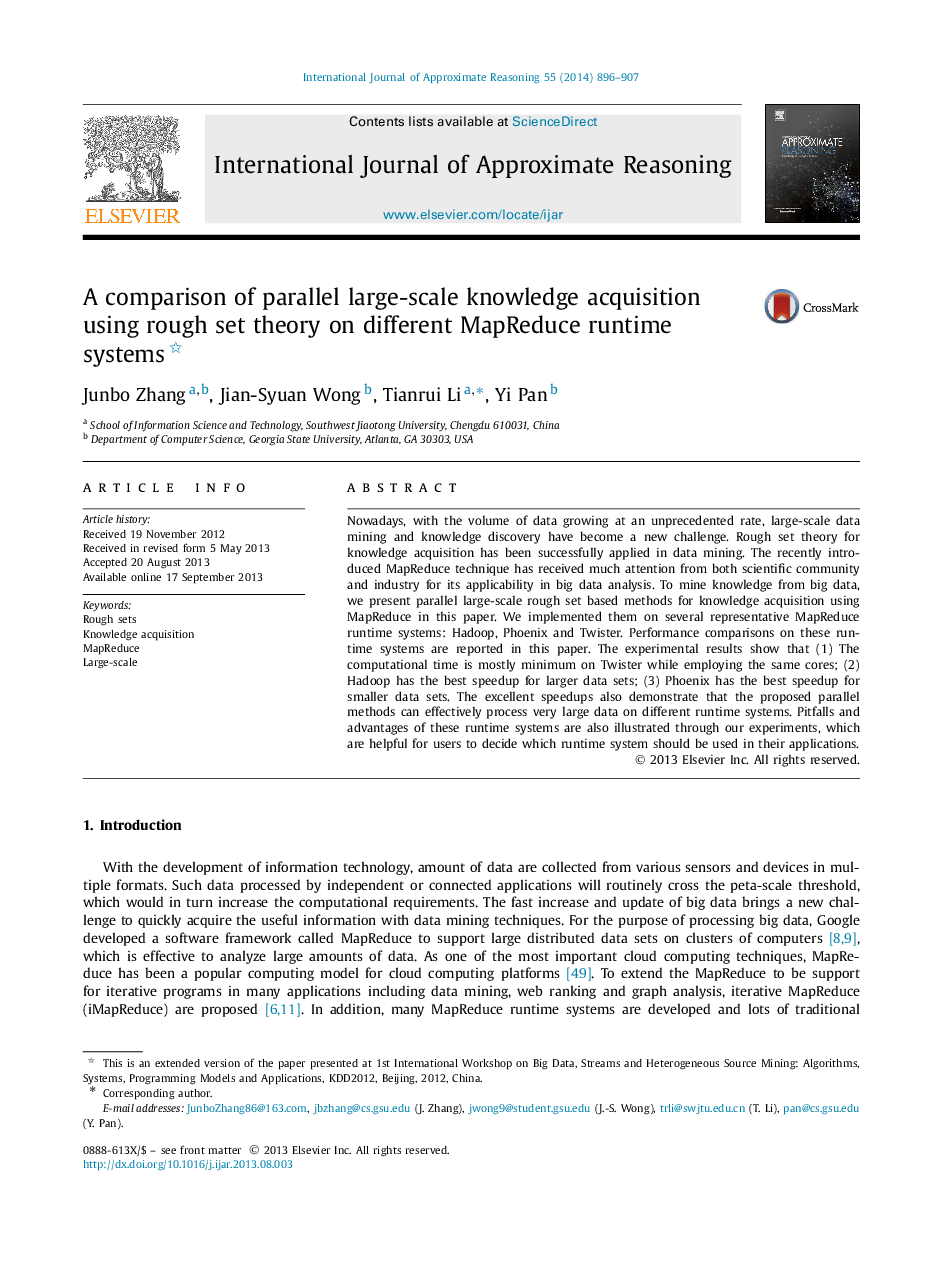ترجمه فارسی عنوان مقاله
مقایسه ای از کسب دانش موازی در مقیاس بزرگ با استفاده از نظریه مجموعه راف بر روی سیستم های زمان اجرای کاهش نگاشت مختلف
عنوان انگلیسی
A comparison of parallel large-scale knowledge acquisition using rough set theory on different MapReduce runtime systems ☆
| کد مقاله | سال انتشار | تعداد صفحات مقاله انگلیسی |
|---|---|---|
| 46258 | 2014 | 12 صفحه PDF |
منبع

Publisher : Elsevier - Science Direct (الزویر - ساینس دایرکت)
Journal : International Journal of Approximate Reasoning, Volume 55, Issue 3, March 2014, Pages 896–907
ترجمه کلمات کلیدی
مجموعه دقیق - کسب دانش - کاهش نگاشت - در مقیاس بزرگ
کلمات کلیدی انگلیسی
Rough sets; Knowledge acquisition; MapReduce; Large-scale

